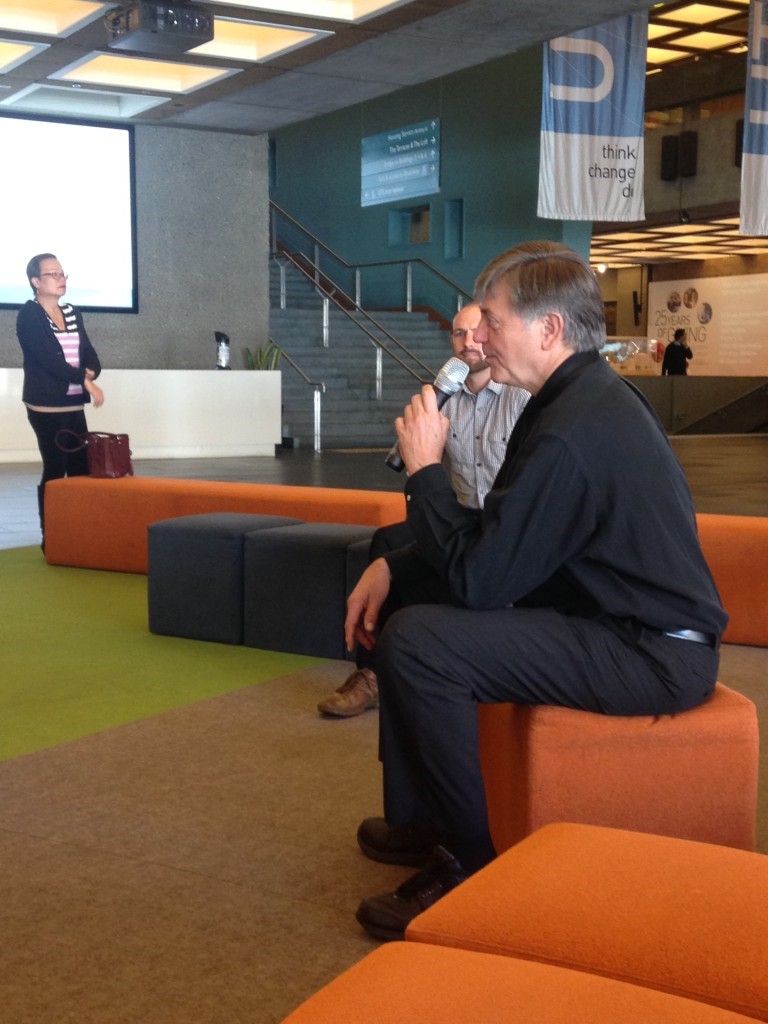This was the theme of the recent Green Week at UTS, which included World Environment day on 5 June. No doubt there were similar events around the globe.
Obviously, the basic goal, expressed by this theme, would be for some, or all of us, to influence, by raising ‘our voices’, the likelihood of achieving sustainability for humanity, while discouraging actions such as prolonged and excessive input of carbon dioxide into the atmosphere, with consequent global warming and rise in sea level. Impossible to argue with that!
During the week, I participated in a conversation with students about sustainability and how we might pursue it. It followed a free breakfast, so there was a gaggle of students with appetites satisfied and keen to talk about the road towards sustainability. I enjoyed it.
 During my part of proceedings, I emphasised the need to interpret ‘your voices’ broadly and mentioned several ways in which they might be raised. These include, as I have mentioned in a previous post, proselytizing about sustainability with family and friends, voting in elections to progress sustainability, and choosing to purchase products and services on basis of sustainability for us all. We need a ‘snowball’ effect.
During my part of proceedings, I emphasised the need to interpret ‘your voices’ broadly and mentioned several ways in which they might be raised. These include, as I have mentioned in a previous post, proselytizing about sustainability with family and friends, voting in elections to progress sustainability, and choosing to purchase products and services on basis of sustainability for us all. We need a ‘snowball’ effect.
Another way in which we can all ‘raise our voices’, in the context of climate change, is to vigorously call for divestment from the fossil fuel industry, in favour of other sources of energy. Many of us have shares in this industry, either directly or through intermediaries such as superannuation funds. This need not continue.
Such divestment has good precedents such as in the case of the tobacco industry. As the deleterious impacts of smoking on individuals, and hence on society, became increasingly evident, many large institutions divested themselves, and therefore their members, from the tobacco industry. As a consequence, fewer people are now smoking tobacco and the consequences for all of us are reduced. Of course, there is still a ways to go on this issue, especially in the developing world, where positive actions have been fewer and of less impact.
A number of Universities have recently been under pressure, from both students and staff, to divest from share-holdings in the fossil fuel industry. Examples include some of the top Universities in the world, such as Stanford and Harvard. My own university (UTS) has recently experienced the same ground swell of opinion.
You could demand similar action, and I encourage you to do so.
MAHB-UTS Blogs are a joint venture between the University of Technology Sydney and the Millennium Alliance for Humanity and the Biosphere. Questions should be directed to joan@mahbonline.org
MAHB Blog: https://stagingphp.com/mahb/blog/raise-your-voices/
The views and opinions expressed through the MAHB Website are those of the contributing authors and do not necessarily reflect an official position of the MAHB. The MAHB aims to share a range of perspectives and welcomes the discussions that they prompt.

